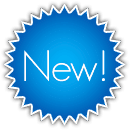Progressive Approaches To Education: Montessori, Waldorf, Reggio Emilia
Preparation:
The course provider will send to the participants a list of materials related to the course topic that they can read in order to prepare for the course. The course provider keeps in touch with the participants and tailors the course according to their specific needs. The course provider offers support if the participants need any information related to accommodation, plane tickets or other details necessary in organising the course.
Course description
The 21st century teacher is facing various pedagogical approaches that can be challenging to apply in the traditional classroom. Progressive education appeared as a counter reaction to traditional education. It mainly focuses on experience and experiential learning, it values the child’s talents and it is not so much concerned with formal learning. The students learn mostly through experience, collaboration and play, thus the main aim of progressive approaches is to turn the learning really student-centred.
This course focuses on trying and using teaching techniques from other educational systems: Montessori, Waldorf and Reggio Emillia in order to broaden one’s teaching range of techniques.
Montessori was developed by Italian doctor and educator Maria Montessori. She made extensive research on holistic child's development, and the results were amazing. Montessori Method is based on human development, and the stages of child's development are crucially important to learning, as well as learning by discovery, the learning environment and the learning materials. Participants on the course will get theoretical and practical knowledge about the Montessori Method. Participants will compare their approach to teaching to the Montessori approach and will discuss ways to integrate Montessori techniques into their own teaching contexts.
Waldorf education is a unique and distinctive approach to educating children which focuses on the children as ‘whole’: ‘head, heart and hands’. Therefore, in the early years of schooling, children do not focus as much on academics as in the mainstream education, but on becoming a whole person and getting to love nature, themselves, their peers and learning. Focusing on arts, games, outdoor activities and science, Waldorf offers a range of techniques that can be easily adapted to mainstream classes and to the students with special needs who attend mainstream education.
Reggio Emilia is focused on the way young children learn by experiencing learning and relationships with the people. Children create connections between ideas and the environment and thus they understand the meaning of what they experience. Teachers spend a lot of time observing the children’s work and creating dialogues which help guide the students’ interest. This approach values collaboration with parents, teachers and the community.
During the course the participants will improve their theoretical knowledge in the area of progressive approaches to education and they will try different activities which are specific to these approaches. They will try to adapt existing tasks and assignments in a way that they suit the needs of mixed ability classes. They will discuss how to experience and perform different roles, and how to engage students of different profiles in the class activity.
Methodology:
The methodological techniques include:- Team – Building Sessions;
- Role – Play
- Mime exercises
- Ice–Breaking and Warm–Up Sessions;
- Energisers
- Group Discussions;
- Debates;
- Drama techniques
- Questioning;
- Goal – Setting sessions;
- Brainstorming;
- Questionnaires
- Become familiarized with the concept of Progressive education
- Raise awareness of the values and principles of different educational methods: Montessori, Waldorf, Reggio Emilia
- Become familiarized with different activities and class settings compatible with the progressive approaches
- Learn how to set a positive and responsive relationship with children according to different methods;
- Foster your critical and creative thinking;
- Be able to evaluate and integrate elements of the different approaches in your context of teaching
- Networking with teachers from various European countries
- Improvement of language and communication skills
- Increased capacity to cooperate at international level
Follow-up
Trainees will be given soft and hard copies of all lesson materials, which they can present to their colleagues at their own organizations to generate interest in the strategies learnt during the training course. In addition, a mailing list of participants will be created in order to exchange ideas/experiences. Self-evaluation materials will be provided. At the end of the course, the participants will fill in a questionnaire in order to get detailed feedback on the effectiveness of the training event.
Programme of training activities day-by-day:
Day 1 – MONDAY
- Welcome and registration;
- Ice – Breakers, Energizers and Warm-ups;
- Introduction to Progressive Education
- Student centred teaching vs teacher centred teaching - debate
Day 2 – TUESDAY
- Introduction to Montessori education
- The history of Montessori approach in education
- The basic philosophy of Montessori approach
- Traditional approach vs. Montessori approach
- The advantages of constructivist/discovery model: Students learn concepts themselves
- Learning from working with materials
- The role of teacher in Montessori approach
Day 3 – WENDESDAY
- The importance of freedom in the Montessori method
- Specialised Montessori materials: What do we need for practising Montessori
- Montessori approach: Different view to pedagogy
- Montessori in mixed classrooms
- The importance of movement within Montessori method
- Montessori education: Model of human development
- „Normalisation“ in Montessori – from 3 to 6 years
- The importance of learning environment in the Montessori education
- Different stages of development: Acquisition of language
Day 4 – THURSDAY
- Waldorf - introduction to a play-based approach
- Principles of Waldorf education
- The complete person: Why is Waldorf education suitable for special needs students just as well as for mainstream students?
- Organizing the classroom space for games - practical examples and activities
- Techniques for developing creative thinking in our students
Day 5 – FRIDAY
- Elements of the Waldorf curriculum that can be adapted to mainstream classes
- Elements of the Waldorf curriculum which work well with special needs students
- The Importance of Parental Involvement in Their Children's Education
- How to turn an idea into a project: activities for arts, languages and science
Days 6/7 – SATURDAY and SUNDAY Workshops and Cultural/Sightseeing Activities
Day 8 – MONDAY
- Reggio Emilia - strictly an early childhood education approach
- Principles and values
- Establishing healthy relationships with children
- Classroom materials and teaching style
- Learning activities and project-work with Reggio Emilia
Day 9 – TUESDAY
- Creativity, music and arts - activities promoted by Reggio Emilia
- How to adapt Reggio Emilia activities to your teaching context
- Experiential learning
- Reggio Emilia: Curriculum or no curriculum? Self-directed learning
- The importance of relationship-driven environment
Day 10 – WEDNESDAY
- Comparison of educational philosophies: Montessori, Waldorf and Reggio Emilia
- Adapting and Using Montessori, Waldorf and Reggio Emilia techniques in your own teaching context
- Evaluation of the course
- Awarding certificates






